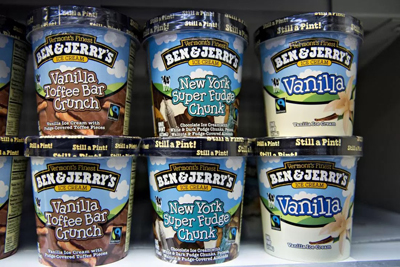Sarah Mansfield, VP Global Media Europe and Americas, Unilever, is chair of the judging panel for the Effective use of integration panel at this year's Warc Media Awards. She is responsible for a total media spend of €1 billion.
Warc's Lucy Aitken spoke to her about mobile, moment marketing and why Ben & Jerry's sells even when it's raining…
What is your organisation's content strategy?
It's a mix. We still use advertising agencies to generate great work. We also have a mix of content partnerships with the likes of Vice where native content is developed that we can align our brands with. It just depends on the job that needs to be done for our brand - it's nuanced depending on the right environment for our brand to be seen in and who our audience is.
How does 'moment marketing' change the nature of comms planning?
It's an overlay on top of what we do already. Moment marketing is great for driving consumer and brand relevance, identifying opportunities where a brand can engage in relevant conversations with consumers about an event or issue about which the brand has a point of view. It's about driving relevance and talking to consumers about things that are important to them.
Can you cite an example of how data helped Unilever uncover a surprising insight that informed future comms planning?
There is an interesting example that goes back to tactical moments. We always think about ice cream being associated with sunny moments - so when the sun is out you are more inclined to eat it. For certain impulse brands that's the case. Yet there was a lot of social chatter about it being a rainy weekend and people staying in on a Saturday night to watch a movie and eat Ben & Jerry's. That piece of insight was completely counter-intuitive to what we had thought and it made us think differently about the type of comms we sent out and where.

What criteria does Unilever use to assess an emerging platform?
It's very much part of the comms planning process. It might be that an emerging platform helps to solve a need we have for a brand. We have vehicles to help us to that such as Unilever Ventures and The Unilever Foundry where we put out briefs and ask start-ups to provide solutions.
Should comms planning adapt to become mobile first?
Yes. You need to plan media neutral and then develop a comms planning strategy based on channels and platforms where your audience is spending time. When you're developing assets you need to take a mobile first approach.
How is data changing comms planning?
Data informs all of our end-to-end marketing decisions so it will help pre-planning in terms of understanding consumers a lot better in terms of what their need states are. It will also provide opportunities for brands in terms of future trends - a lot of this can be done through social media listening and search trends. There's a whole wealth of data to inform and drive greater insights – there are data sensors rolling out across the globe at the moment to allow us to do that in an impactful, effective way. Then it's key in terms of ongoing optimisation of your media. No longer do you just buy a media plan and a campaign. Now, it's about ongoing optimisation to drive media effectiveness and being able to react in real time. It's also about ensuring that money is being best invested in terms of media working and driving relevance for consumers. We then analyse results. More data is at the heart of everything in terms of informing our decisions. However, data will only get you so far, it takes human intervention to interpret it and drive interesting insights that we can act upon. The idea is not to be ruled by data but to use it to make informed decisions.
Warc's Media Awards recognise comms planning which has made a significant impact on business results. Free to enter, there's a $40K prize fund. To enter your work, click here. Deadline for entries: 19 September.

